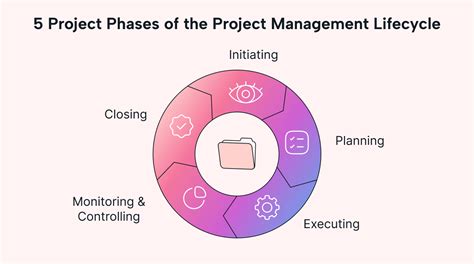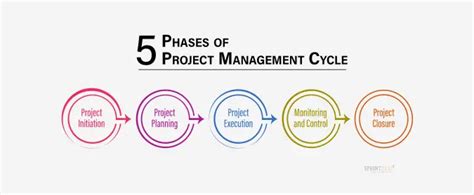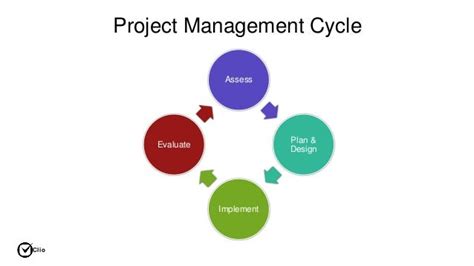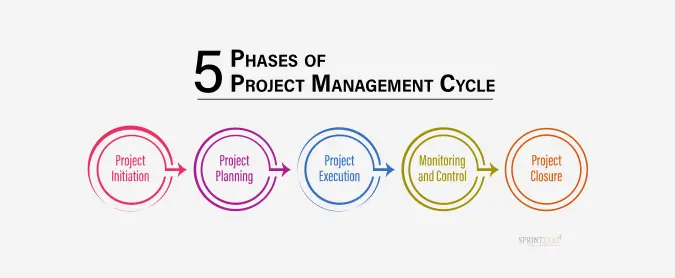The Certified Associate in Project Management (CAPM) certification is a valuable entry point for aspiring project leaders seeking to establish a solid foundation in project management. As a globally recognized credential, the CAPM demonstrates your knowledge of project management principles and methodologies, making you a more competitive candidate in today’s job market. This guide provides a comprehensive review of the CAPM certification, covering essential details like eligibility requirements, exam structure, preparation resources, and tips for success. Whether you’re new to project management or looking to enhance your leadership skills, this detailed review will help you understand the benefits of CAPM certification and how it compares to the more advanced Project Management Professional (PMP) certification.
rosawblog.com will explore this topic comprehensively.
1. Introduction to CAPM Certification
The Certified Associate in Project Management (CAPM) is a professional certification offered by the Project Management Institute (PMI), designed for individuals looking to start or advance their careers in project management. It serves as an entry-level certification for those with limited project management experience, providing foundational knowledge in project management principles, processes, and best practices as outlined in the Project Management Body of Knowledge (PMBOK Guide).
Earning the CAPM credential can significantly enhance your credibility and open up career opportunities across various industries. It demonstrates a commitment to learning and adhering to globally recognized standards in project management, making it an excellent option for individuals seeking to establish or reinforce their expertise in managing projects. The certification is widely recognized by employers, offering an advantage in competitive job markets and contributing to long-term career growth.
This section explores the core components of the CAPM certification, from its importance in today’s business environment to the professional value it offers aspiring project leaders looking to differentiate themselves in the field of project management.

2. Eligibility Requirements
To be eligible for the CAPM certification, candidates must meet specific educational and professional prerequisites set by the Project Management Institute (PMI). The first requirement is a secondary degree, such as a high school diploma, associate degree, or the global equivalent. This ensures that candidates possess a basic level of education necessary to understand project management concepts.
In addition to the educational requirement, candidates must either complete 23 hours of project management education or have 1,500 hours of project experience. The 23 hours of formal education can be obtained through PMI-approved training programs, online courses, or project management workshops. This ensures that candidates have a solid understanding of project management principles before taking the exam.
There are no work experience requirements for the CAPM, making it an ideal certification for those just starting in the field. Upon meeting these criteria, candidates can register for the CAPM exam, beginning their journey toward becoming certified project management professionals.

3. Exam Structure and Content
The CAPM exam is structured to assess a candidate’s understanding of fundamental project management principles as outlined in the Project Management Body of Knowledge (PMBOK Guide). It consists of 150 multiple-choice questions, which must be completed within a three-hour timeframe. Of these 150 questions, 15 are pretest questions used for future exam development and do not count toward the final score.
The content of the exam is divided into key areas of project management, with each domain covering essential knowledge areas. These domains include the five process groups: initiating, planning, executing, monitoring and controlling, and closing a project. Additionally, the exam covers the ten knowledge areas, such as project integration management, scope management, schedule management, cost management, quality management, and risk management.
The CAPM exam places significant emphasis on the candidate’s ability to understand processes, project life cycles, and the roles and responsibilities of a project manager. It also tests knowledge of tools, techniques, and terminologies used in the field.
Candidates should thoroughly study the PMBOK Guide and focus on the processes, best practices, and methodologies applied in real-world project management. The exam tests not only theoretical knowledge but also the candidate’s ability to apply these principles in practical scenarios, ensuring a well-rounded understanding of project management fundamentals.

4. Preparation Resources
Preparing for the CAPM exam requires a combination of self-study, formal education, and practical review. One of the primary resources candidates should rely on is the Project Management Body of Knowledge (PMBOK Guide). This guide is the foundation of the CAPM exam, covering all key areas of project management, and is essential for understanding the processes, tools, and techniques that will be tested.
PMI also offers various official preparation materials, including online courses, study guides, and practice exams, specifically designed to help candidates gain a thorough understanding of the exam content. Additionally, many PMI chapters and registered education providers (REPs) offer instructor-led courses that dive deeper into the exam topics.
Other valuable resources include online learning platforms such as LinkedIn Learning, Udemy, and Coursera, which provide CAPM-specific courses that cover both theory and practical application. Practice exams are another essential tool, helping candidates familiarize themselves with the exam format, timing, and types of questions they will encounter.
Joining a CAPM study group or participating in PMI chapter meetings can also be beneficial. These environments allow candidates to interact with peers, share insights, and gain real-world perspectives from experienced project managers. Overall, utilizing a mix of these resources will better equip candidates for a successful CAPM exam experience.
5. Exam Registration and Cost
Registering for the CAPM exam is a straightforward process that begins by creating an account on the Project Management Institute (PMI) website. Once registered, candidates need to fill out the CAPM application form, providing details about their educational background and project management education or experience. After submission, PMI typically takes about five business days to review and approve the application.
Once approved, candidates can pay the exam fee and schedule their test. The cost of the CAPM exam varies depending on whether the candidate is a PMI member. For PMI members, the exam fee is $225, while non-members pay $300. PMI membership costs $129 annually, plus a one-time $10 application fee, but it offers additional benefits such as discounted exam fees and access to exclusive resources.
Candidates have the option to take the exam online or at a designated testing center, depending on their preference and availability. Online exams are proctored and offer flexibility in scheduling, while testing centers provide a more traditional exam environment. Whether opting for the online or in-person exam, it’s essential to register early and choose a convenient date to ensure ample preparation time before the test.
6. Exam Tips and Strategies
Successfully passing the CAPM exam requires a strategic approach to both preparation and test-taking. One of the most effective tips is to start with a thorough review of the PMBOK Guide, as this is the foundation of the exam. Breaking the guide into manageable sections and focusing on one topic at a time can help prevent overwhelm and ensure deep understanding.
Practice exams are invaluable for getting familiar with the exam structure and timing. Taking multiple practice tests will not only help you gauge your readiness but also improve your time management skills, which are essential during the actual exam. Aim to complete practice exams under timed conditions to simulate the real experience.
It’s also important to focus on understanding key concepts, processes, and formulas rather than just memorizing definitions. Many questions on the CAPM exam will require applying knowledge to situational scenarios, so comprehension is key.
During the exam, carefully read each question and eliminate obviously incorrect answers to improve your chances of selecting the correct one. If unsure, mark the question and return to it later after answering easier questions.
Finally, ensure you’re well-rested before the exam. Avoid last-minute cramming and arrive early or log in on time if taking the online exam to reduce stress and stay focused.
7. Benefits of CAPM Certification
The CAPM certification offers numerous benefits for aspiring project managers. First and foremost, it validates your understanding of fundamental project management principles and methodologies, providing a solid foundation for your career. This certification enhances your credibility and demonstrates your commitment to the profession, which can make you a more attractive candidate to employers.
Obtaining the CAPM credential can also open up new career opportunities and potentially lead to higher earning potential. Many organizations value the CAPM certification as it signifies a commitment to professional growth and adherence to industry standards.
Additionally, the CAPM certification provides a structured pathway for career advancement. It serves as a stepping stone to more advanced certifications, such as the Project Management Professional (PMP) certification, by helping you gain essential project management knowledge and experience.
Moreover, CAPM certification holders gain access to a global network of project management professionals and resources through PMI. This network can provide valuable support, mentorship, and opportunities for continued learning and development in the field. Overall, the CAPM certification is a strategic
8. Comparison with PMP Certification
The CAPM and PMP certifications, both offered by PMI, cater to different stages in a project management career. The CAPM, or Certified Associate in Project Management, is designed for individuals who are new to project management or have limited experience. It provides foundational knowledge and demonstrates a basic understanding of project management principles. The CAPM is ideal for those seeking to enter the field or advance their career with a recognized credential that showcases their commitment and knowledge.
In contrast, the PMP, or Project Management Professional, is an advanced certification aimed at experienced project managers. It requires a higher level of expertise, including significant project management experience and advanced education. The PMP certification is more comprehensive and covers a broader range of project management processes and best practices. It is recognized globally as a mark of excellence for seasoned project managers and often leads to more senior roles and higher salaries.
While the CAPM serves as a stepping stone towards more advanced certifications like the PMP, the PMP certification is a testament to a deeper level of project management proficiency and leadership capability. Both certifications enhance career prospects, but they target different levels of experience and career aspirations within the field of project management.
9. Maintaining and Renewing Certification
Maintaining and renewing your CAPM certification is crucial to ensuring that your credential remains valid and reflects your ongoing commitment to professional development. The CAPM certification is valid for five years from the date of issue. To maintain your certification, you must renew it before it expires.
Renewal of the CAPM certification requires earning 15 Professional Development Units (PDUs) during each five-year cycle. PDUs can be earned through various activities such as attending PMI-approved workshops, webinars, or training courses. Engaging in relevant project management work and participating in PMI chapter events also count toward PDUs.
To renew your certification, you need to submit a renewal application through the PMI website and pay the renewal fee. For PMI members, the renewal fee is $150, while non-members pay $200. It’s essential to keep track of your PDUs and submit them on time to avoid any lapse in certification.
By staying current with the latest industry practices and continuously developing your skills, you not only meet renewal requirements but also enhance your professional value and career prospects.
10. Real-World Application and Case Studies
The CAPM certification equips professionals with foundational knowledge and practical skills applicable in various real-world scenarios. For instance, a project coordinator in a tech company who earns the CAPM certification can apply project management principles to streamline workflows, enhance team collaboration, and ensure timely project delivery. By utilizing CAPM concepts such as risk management and project scheduling, the coordinator can effectively address challenges and contribute to the project’s success.
Case studies from diverse industries highlight the practical impact of CAPM certification. In one example, a healthcare project manager used CAPM principles to oversee a hospital’s IT system upgrade. The certification helped in defining project scope, managing stakeholder expectations, and adhering to budget constraints, ultimately leading to a successful implementation with minimal disruption to hospital operations.
Another case involves a construction project manager who applied CAPM methodologies to coordinate multiple contractors and ensure that project milestones were met. The structured approach provided by CAPM facilitated clear communication and efficient project execution, demonstrating how the certification can lead to tangible improvements in project outcomes across various sectors.
The CAPM certification offers a valuable foundation for aspiring project managers, providing essential knowledge and enhancing career prospects. By meeting eligibility requirements, preparing effectively, and understanding the benefits and comparisons with other certifications like the PMP, candidates can leverage CAPM to advance their careers. Maintaining certification and applying CAPM principles in real-world scenarios further ensures long-term success and growth.
rosawblog.com
